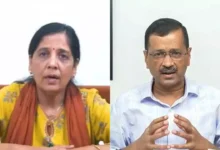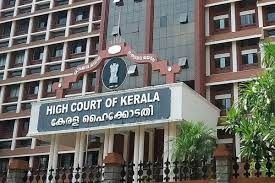Election Commissioners’ Perspective: Described and How Are They Choosing Them? EC Powers: What Are They?
The Supreme Court questioned the Center’s pace at which the Search Committee narrowed down the field of applicants, but it declined to halt the appointment of Election Commissioners today.

The process by which the Election Commissioners were chosen was called into doubt by the SC, not their candidacies.
Let’s examine the election commissioner selection procedure.
Arun Goel and Anup Chandra Pandey resigned, leaving Chief Election Commissioner Rajiv Kumar as the only members of the three-person poll panel before to the 18th Lok Sabha election.
The President of India designated Gyanesh Kumar and Sukhbir Singh Sandhu as Election Commissioners to fill the vacancies in the three-member Election Commission.
According to the Chief Election Commissioner and other Election Commissioners (Appointment, Conditions of Service and Term of Office) Act, 2023, they are the first to be appointed to the Election Commission.
In accordance with the new legislation, Prime Minister Narendra Modi, Union Minister Amit Shah, and Leader of the Opposition in the Lok Sabha, Adhir Ranjan Choudhary, made up the Selection Committee that chose the two ECs.
Six names were shortlisted, and two ECs were selected. The committee, which included two government secretaries, was led by the Union law minister and chose the shortlisted applicants.
The legislation states that a vacancy or other flaw in the selection committee’s constitution “shall not invalidate” the appointment of the Chief Election Commissioner and Election Commissioners.
THINGS SC SAID PRIOR?
In order to guarantee openness in the selection process, the Supreme Court decided in March 2023 that the ECs and CECs would be appointed by a three-member panel that includes the Chief Justice, the Leader of the Opposition, and the PM.
As stated in Article 324 of the Constitution, the Supreme Court noted that the founding fathers of the United States did not want the Executive to have exclusive authority to choose members of the Election Commission.
In the past, the Executive appointed the EC, and the Law Ministry would select individuals from a government database of active and retired officials, including secretaries and chief secretaries.
The President would nominally make the nomination, but the Prime Minister would make the final decision.
WHAT MADE THE NEW LAW NECESSARY?
The Supreme Court received four petitions in 2015, 2017, 2021, and 2022 requesting an equitable and open election commissioner selection process.
On October 23, 2018, a two-judge court reviewing the 2015 petition determined that the case necessitated an interpretation of Article 324, which addresses the Election Commission’s responsibilities. This matter was sent to a Constitution bench since it had never been considered by the Supreme Court. According to an Indian Express article, a five-judge Constitution bench headed by Justice KM Joseph began considering the petitions in September 2022.
The petitioners emphasized that while the Constitution has a clause defining the President’s role in designating election commissioners, it is subject to any legislation approved by Parliament. However, the study also said that no countries had any interest in passing the bill.
In August of last year, the Center submitted a bill outlining the process for designating an election commissioner. In December 2023, the bill was approved by Parliament despite criticism from the opposition parties about the committee’s makeup.
ELECTION COMMISSION’S POWERS
The commission has the authority to set the borders of electoral seats for various elections and carry out its duties in compliance with the Delimitation Act.
It has the authority to verify political party spending, enforce the Model Code of Conduct for election campaigns, and register or deregister any political party.
Additionally, it assigns officials from other Civil Services divisions to act as selection and spending monitors.
Regarding the circumstances surrounding the disqualification of Members of Parliament, the Commission may also provide the President with advice. Additionally, it provides guidance to the governors about the disqualification of state legislative members. In regards to post-election issues, it also serves as guidance for the Supreme Court and High Courts.







